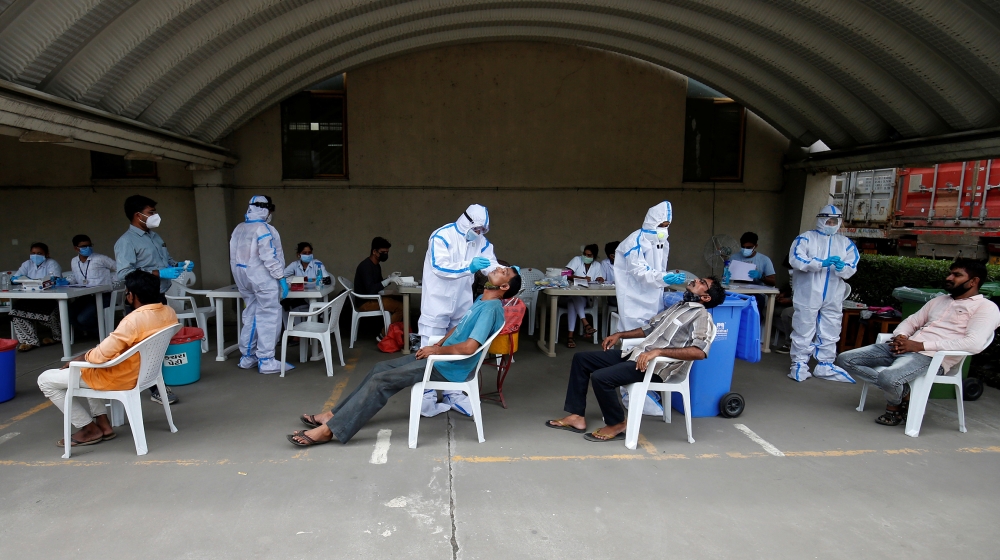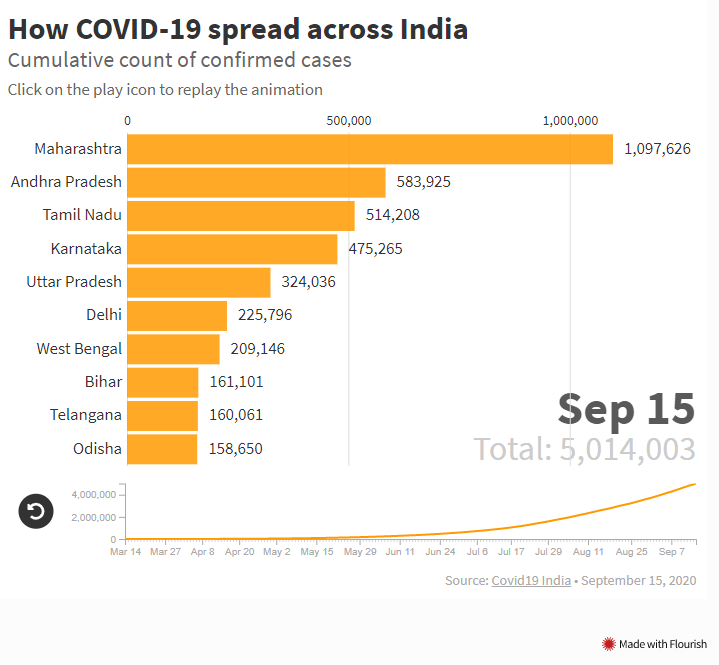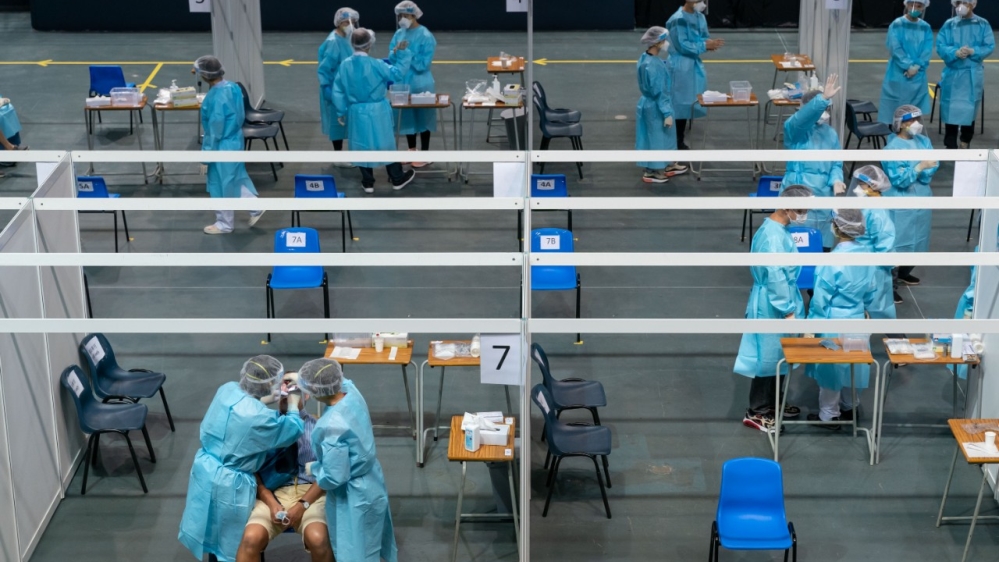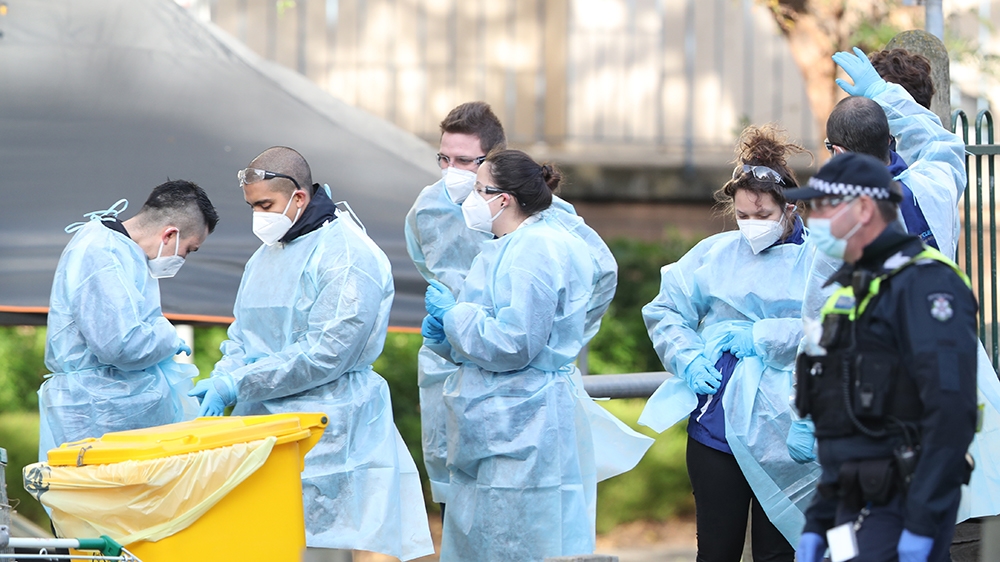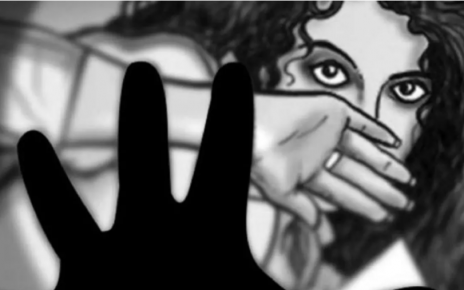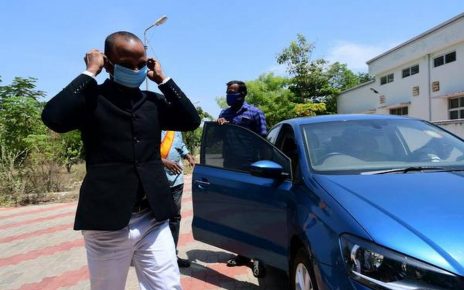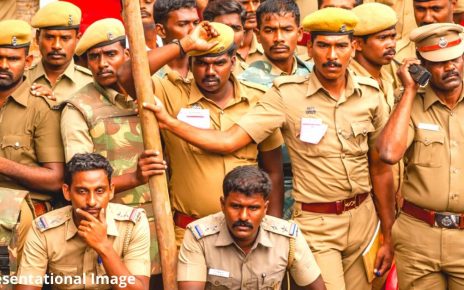Al Jazeera
16 September 2020
Country with world’s second-highest caseload confirms more than 90,000 new cases on Wednesday as outbreak accelerates.
By Kate Mayberry & Usaid Siddiqui
- India has now reported more than five million cases of the coronavirus, the second country after the US to report so many cases.
- Melbourne looks to be on course to ease out of a strict lockdown and curfew from September 28, as the average number of cases drops.
- Nearly 29.5 million people around the world have been diagnosed with COVID-19 and 933,542 have died, according to data from Johns Hopkins University. Nearly 20 million people have recovered from the disease.
Here are the latest updates:
Wednesday, September 16
09:10 GMT – Vietnam to resume international flights, but not tourism
Vietnam will resume international commercial flights connecting the country to several Asian destinations starting Friday, after a monthslong shutdown to curb the coronavirus outbreak.
The flights, however, are reserved for Vietnamese nationals, diplomats, experts, managers, skilled workers, investors and their families. They are not yet available for tourists.
08:30 GMT – Philippines confirms 3,550 new coronavirus infections, 69 deaths
The Philippines’ health ministry recorded 3,550 additional novel coronavirus infections and 69 more deaths.
In a bulletin, the ministry said total confirmed cases had risen to 272,934, the most in Southeast Asia, while confirmed deaths have reached 4,732.
07:53 GMT – Over 300 Indian jails infected with COVID-19 – NCAT
In 351 jails across India, out of a total 1,350, have reported coronavirus infections according to The National Campaign Against Torture.
Uttar Pradesh, Madhya Pradesh, and Maharashtra were the states with the most number of prisons infected.
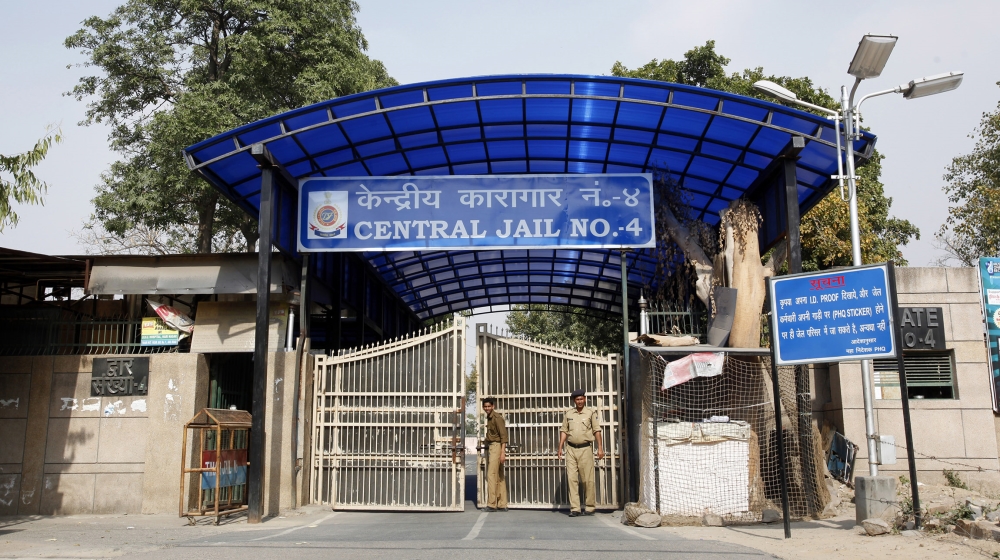
07:17 GMT – Serum Institute gets approval to resume Indian trial of AstraZeneca COVID vaccine-source
Serum Institute of India has received Indian regulatory approval to resume local clinical trials of AstraZeneca’s potential COVID-19 vaccine, a source familiar with the matter said.
The approval came from the Drugs Controller General of India, the source said.
AstraZeneca has resumed British clinical trials of the vaccine – one of the most advanced in development for COVID-19 – after they were paused earlier this month following a serious side effect in a trial participant.
06:45 GMT – Infographic: How coronavirus spread across India
06:10 GMT – Ukraine reports record daily high in coronavirus deaths
Ukraine registered a record 76 deaths related to the new coronavirus in the past 24 hours, the national security council said on Wednesday, up from a record of 72 deaths registered last week.
The council said 162,660 cases were registered in Ukraine as of Sept. 16, with 3,340 deaths and 72,324 people recovered.
05:30 GMT – China begins trials of world-first nasal spray vaccine: report
Caixin is reporting that China has begun human trials of a coronavirus vaccine delivered as a nasal spray that could provide an alternative to injections.
It’s the first vaccine of its kind in the world to proceed to human trials, Caixin said, citing the WHO’s latest list of vaccine candidates.
The vaccine is being developed by Hong Kong University, Xiamen University and a Beijing-based vaccine manufacturer.
video
04:40 GMT – ‘Not comfort food’: Scorsese speaks out at Toronto Film Festival
Oscar-winning film director Martin Scorsese has warned cinema is becoming “marginalised and devalued” as a “form of comfort food” during the coronavirus pandemic.
Scorsese made the comments in an introductory video to the Toronto Film Festival, where he praised the organisers for going ahead with the event, North America’s largest film festival.
Toronto is taking place mainly online this year, along with a handful of drive-in and limited capacity indoor screenings.
04:00 GMT – India cases exceed five million
Cases of coronavirus have passed the five million mark in India after the authorities confirmed 90,123 new cases on Wednesday.
India is second only to the US in the number of cases confirmed.
Its death toll is much lower, however.
The health ministry said on Wednesday an additional 1,290 people had died from COVID-19, bringing the death toll to 82,066. Nearly 196,000 people have died from the disease in the US.
You can read more on that story here.
03:30 GMT – UN could meet on pandemic, in-person, before year-end
The United Nations could hold an in-person meeting of the General Assembly New York as early as November to discuss the COVID-19 pandemic.
Assembly president Volkan Bozkir says discussions are continuing with some countries concerned about meeting so soon – especially in the United States, where the virus continues to spread widely..
Bozkir is keen to start in-person UN meetings, which have taken place via video conference since March, as soon as possible, saying such a summit should have happened “in June.”
02:55 GMT – Air New Zealand plans to fire more cabin crew
Air New Zealand plans to cut as many as 385 more cabin crew jobs because the coronavirus has forced it to reduce international routes.
The reductions would bring its COVID-19 related job losses to around 37 percent of its workforce, which is higher than both Qantas and Singapore Airlines.
in annoucing the decision, Air New Zealand noted the decline in demand on North American routes. It now operates return flights to Los Angeles three times a week rather than every day and has converted its San Francisco flights to cargo only.
02:35 GMT – Japan commits $135m to WHO’s global vaccine programme
Japan has committed 17.2 billion yen ($165 million) in funds for the WHO’s global COVID-19 vaccine programme, known as COVAX.
The initiative is aimed at helping buy and fairly distribute a COVID-19 vaccine to countries around the world. But some countries which have secured their own supplies through bilateral deals, including the United States, have said they will not join.
Japan has also pursued independent arrangements with global pharmaceutical companies to secure vaccines, with the government pledging to have enough supply for the whole population by the first half of 2021. The COVAX programme has set a Sept. 18 deadline for contributions.
02:30 GMT – Hong Kong wraps up mass testing programme
Hong Kong has wrapped up a mass testing programme that fuelled controversy because of the involvement of experts from the mainland.
About 1.78 million specimens were collected in the two-week exercise with 45 COVID-19 cases found as a result of the testing and associated contact tracing, according to the government.
The territory, which is home to about 7.5 million people, is to begin relaxing some of its coronavirus curbs from Friday.
02:20 GMT – China suspends poultry imports from second US plant
China has suspended imports from an OK Foods poultry plant in Arkansas, because of coronavirus cases among workers, according to the USA Poultry & Egg Export Council.
It’s the second US poultry factory to be blocked because of an outbreak among employees. “We don’t think that either one of these two are justified, especially considering the fact that the virus cannot be transmitted in poultry meat,” said Jim Sumner, president of the USA Poultry & Egg Export Council.
Chinese customs authority GACC suspended imports from the OK Foods facility, he said. The Arkansas plant became ineligible to ship products to China on Sepember 13, according to the US Department of Agriculture.
02:00 GMT – Trump quizzed on COVID-19 response at election town hall
US President Donald Trump has been questioned by voters on his coronavirus response at a town hall meeting in Pennsylvania.
Asked by one uncommitted Pennsylvania voter why he had played down a pandemic that was known to endanger low-income families and minority communities, he claimed he had done the opposite.
“I didn’t downplay it. In many ways I up played it in terms of action,” Trump said at the event, which was sponsored by ABC News.
“You do not admit to it yourself?” the voter, Ajani Powell, interrrupted.
Trump continued, “Yeah, because what I did is with China, I put a ban on. With Europe, I put a ban on and we would have lost thousands of more people had I not put the ban on. So, that was called action. Not with the mouth but in actual fact.”
He also said a vaccine would probably be available soon. “We’re very close to having a vaccine,” he told the audience. “We’re within weeks of getting it you know could be three weeks, four weeks.”
|
|
01:00 GMT – Victoria on course to ease Melbourne lockdown by month’s end
Australia’s Victoria state looks to be on course to relax a strict lockdown in the city of Melbourne by the end of the month after the average number of cases over the last two weeks dropped below 50, which is within the target range for the state to ease restrictions from September 28.
The fall in cases in recent days – 42 were reported across the state on Wednesday – from early August’s triple-digit highs means some curbs will be eased in rural areas of the state late on Wednesday.
In these places, outdoor gatherings of up to 10 people will be permitted, residents of a household will be allowed to visit one other home, and cafes will be able to seat up to 50 people outside.
#COVID19VicData UPDATED: We have reissued today’s data as there are 81 cases with unknown source in Metro Melbourne, not 82, as earlier tweeted. Yesterday there were 42 new cases reported and 8 lives lost. Info: https://t.co/eTputEZdhs pic.twitter.com/buI8b9yv7J
— VicGovDHHS (@VicGovDHHS) September 15, 2020
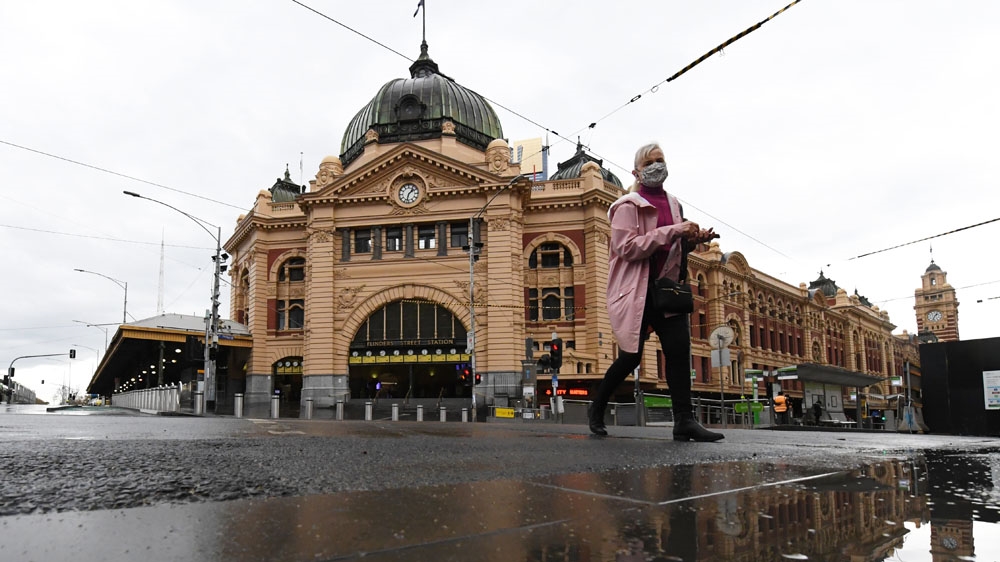
00:00 GMT – Poorly-fitting masks increase risk to health workers who are female or Asian: study
A new study has found female healthcare workers and medical staff with Asian heritage are more vulnerable to COVID-19 infection because they are less likely to be using face masks that fit them properly.
The analysis published in the journal Anaesthesia looked at studies into the assessment of filtration masks like the N95 and FFP2 models, which are used by medical workers in high-risk situations.
Their review looked at research that showed higher initial fit-pass rates in Caucasians (90 percent) compared with Asians (84 percent) and said particularly low initial fit-pass rates were found in Asian women, with a reported average of just 60 percent.
In the US, the report said authorities use a fit-test panel to assess the suitability of the N95 masks provided to healthcare workers, but they noted that the facial dimensions represented by the panel were based on a group of people in which women and Asians were “underrepresented”.
In many countries around the world, women make up at least three-quarters of all healthcare staff. The authors said that to ensure a mask is not liable to leak, it needs to adequately fit the face shape of the wearer, adding that fit appears to be more important for protection from airborne viral spread than the filtration capacity of the mask itself.
—-
Hello and welcome to Al Jazeera’s continuing coverage of the coronavirus pandemic. I’m Kate Mayberry in Kuala Lumpur.
Read all the updates from yesterday (September 15) here.
SOURCE: AL JAZEERA AND NEWS AGENCIES

